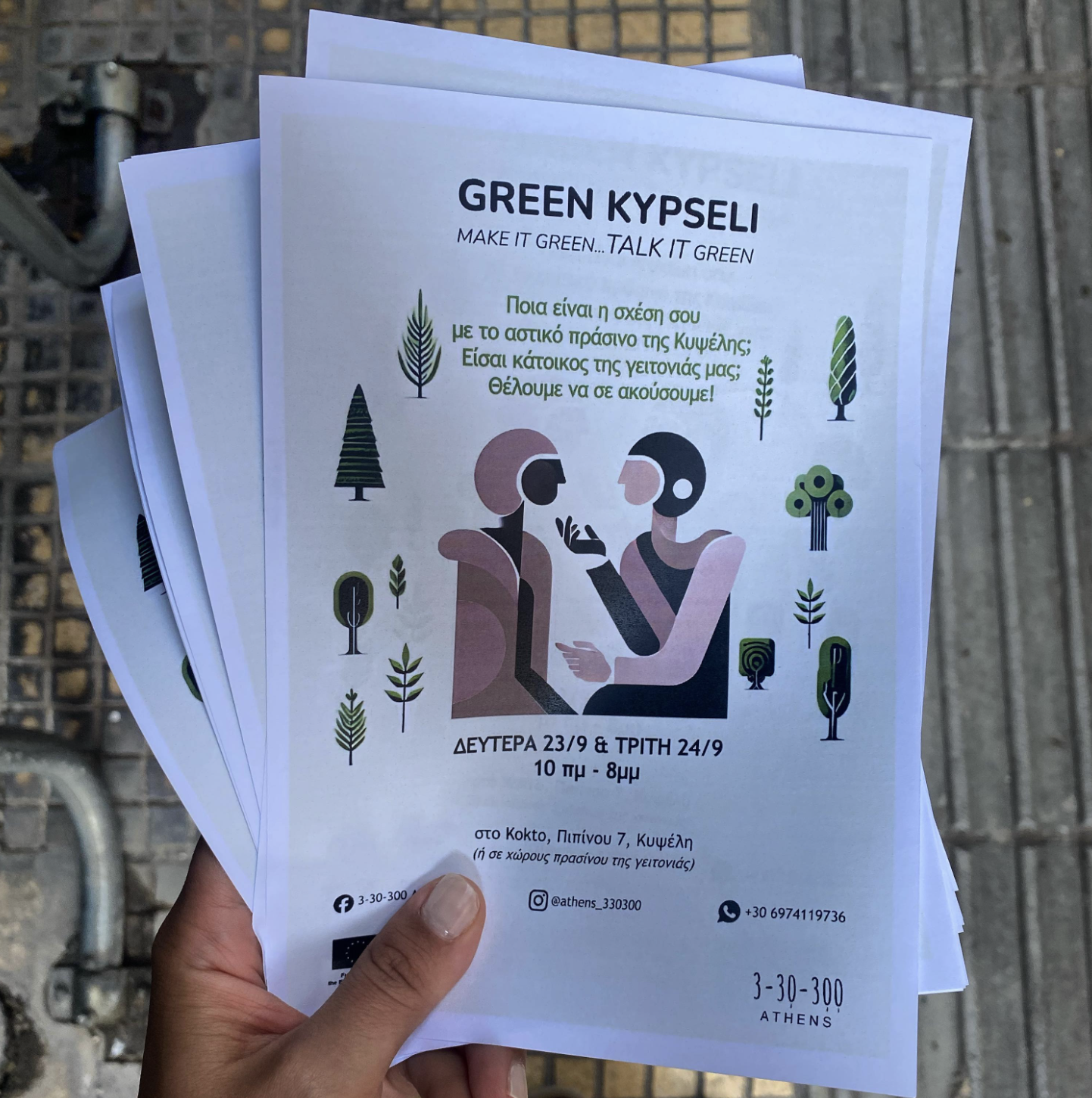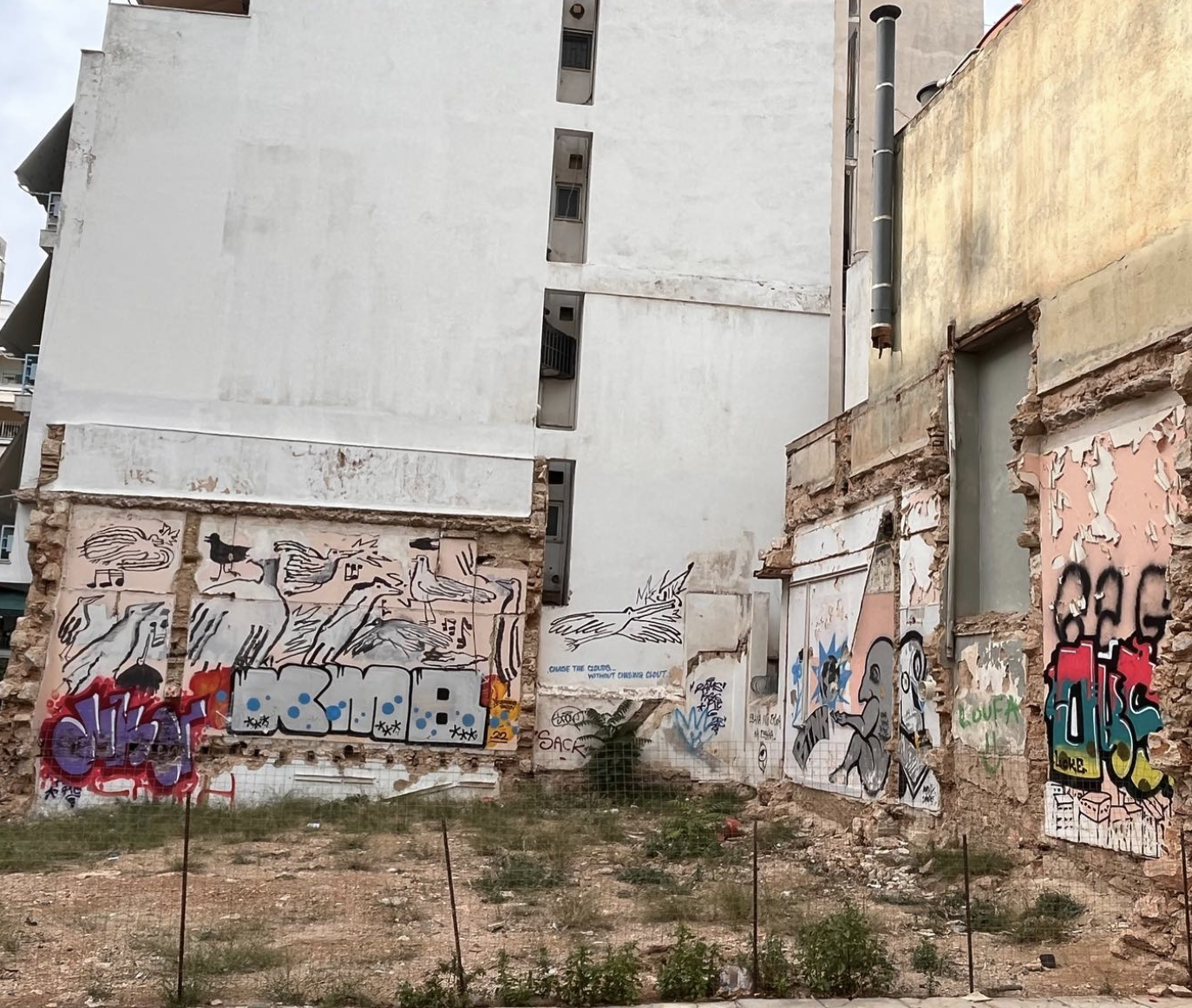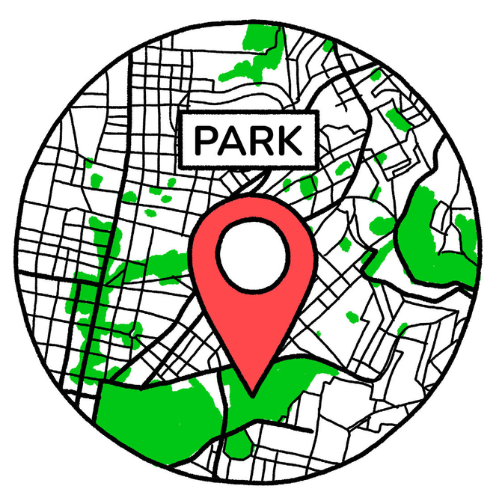Project Description:
In collaboration with the residents of Kypseli, a central district of Athens, the ‘3-30-300 ATHENS’ project seeks to thoroughly assess the area’s urban composition against the 3-30-300 rule for urban forestry and green spaces. Through citizen engagement and creative green city interventions, the project aims to map the current green topology using both digital and analogue techniques.
Additionally, these mapping activities, workshops, and green initiatives will not only identify areas needing future development but also raise awareness among residents about the numerous benefits of green surroundings and engage them in the area’s redesign. Ultimately, the project aspires to empower citizens and inspire a citizen-led transformation of Athens into a green city of the future.
Project Type: Kick Starting Grant
Theme: Justice and Equity, Climate
Mentor:Louise Francis
From Maps to Action: Building a Greener, More Inclusive Kypseli
The 3-30-300 Athens initiative is a creative, citizen-led effort to transform Athens into a greener, more livable city for all. The project began in Kypseli, a central, multicultural district and one of the most densely populated areas in Europe. With limited green spaces and significant environmental and social challenges, Kypseli highlights a pressing need for action. The initiative’s ambitious goals are rooted in meaningful citizen engagement and collaboration with local organisations, forming the foundation for long-term urban transformation.
The project began with interviews and creative collaborations that brought residents together to share their perspectives, ideas, and concerns regarding green spaces. These interviews built strong connections within the community, leading to the creation of Green Kypseli—a proactive collective of citizens united by a shared vision of creating a more sustainable and inclusive urban environment. This collective has become the driving force behind the initiative.
Simultaneously, the project established collaborations with local organizations such as WeNeedBooks, Hoko Crafts, and KOKTO to engage residents in creative community activities. Workshops at WeNeedBooks encouraged children and teens to reimagine unused spaces, while the Plant Hospital event at the Kypseli Municipal Market offered plant care tips, fostering community ties. These initiatives raised awareness, built trust with locals, and laid the groundwork for broader citizen involvement.

Building on the connections established during earlier outreach efforts, mapping walks became the core of the project. These walks united the Green Kypseli collective and other citizens to map local greenery, guided by the 3-30-300 rule for urban spaces. Although widely recognized, the rule lacks clear measurement guidelines—a gap the project sought to address.

Participants used printed maps generated with custom-designed software to document tree locations and identify empty plots in the area. The mapping walks evolved beyond simple data collection; they became a practice of care, encouraging citizens to observe their surroundings closely, reflect on their environment, and engage with it in meaningful ways. These walks sparked discussions and insights, fostering a deeper connection to the urban landscape. This participatory approach not only gathered essential data but also refined the accuracy and user-friendliness of the digital tool, ensuring it is both effective and adaptable.
Several organisations and community groups have already expressed interest in hosting workshops at their locations and engaging their members next spring. Subject to securing additional funding, our goal is to refine our protocol and its interpretation in collaboration with scientists. This will empower local communities to better understand and address soil-related issues, ultimately fostering a deeper connection with their urban environment.
The developed digital toolkit standardises methods for measuring urban greenery and offers a versatile solution applicable to other cities and similar initiatives. It empowers citizens, planners, and researchers to promote sustainable urban development beyond Kypseli.
The resulting map—created by citizens for citizens—will be a vital resource for engaging policymakers in efforts to expand green spaces within Kypseli’s dense urban fabric. Looking ahead, the project’s ambition is to collectively create more accessible community gardens or pocket parks in the neighbourhood. This aligns with SDG 11.7, promoting safe, inclusive, and sustainable green spaces at a local level.



